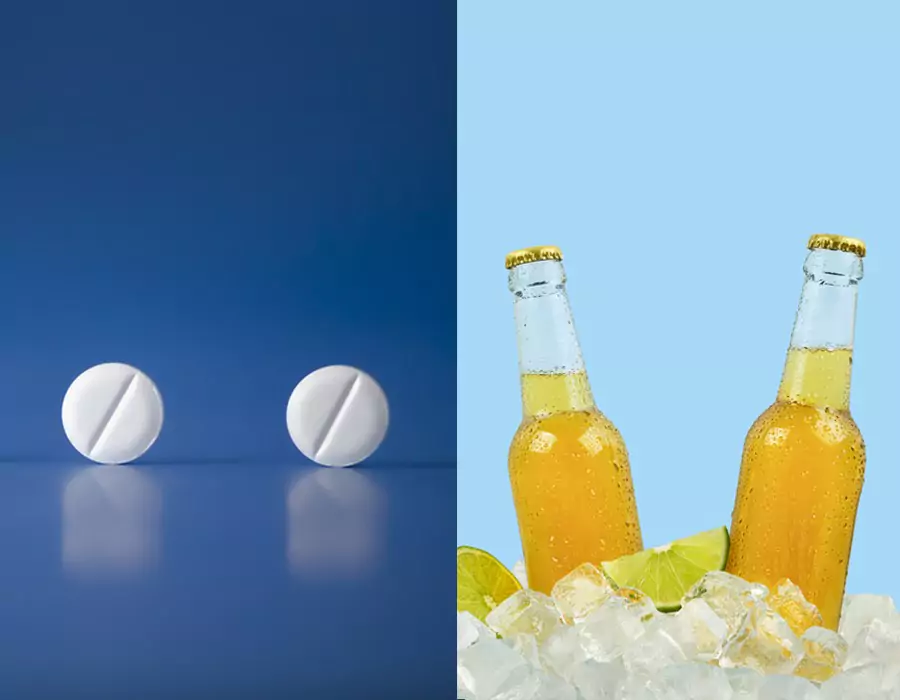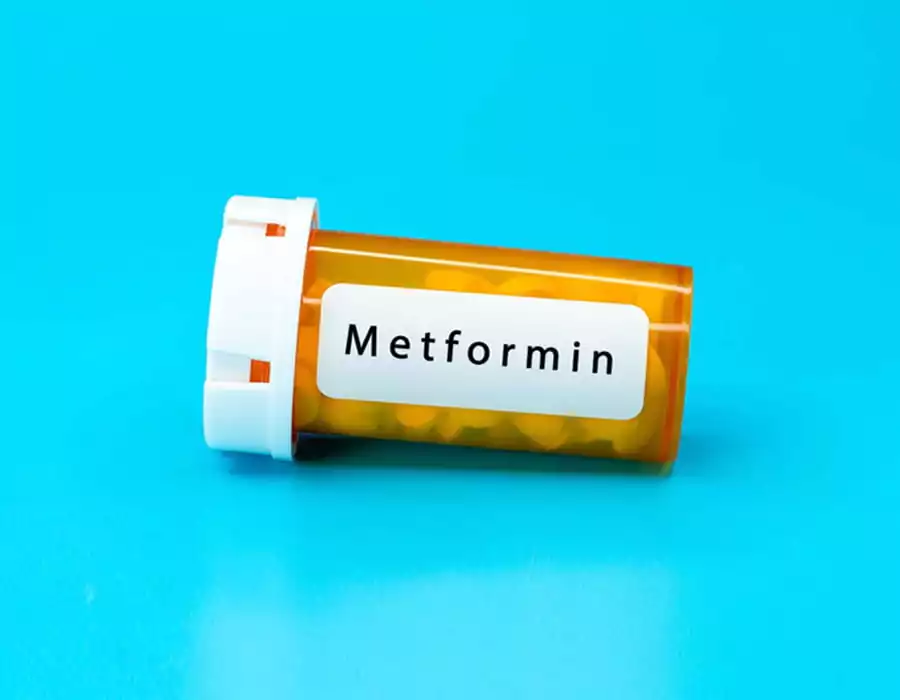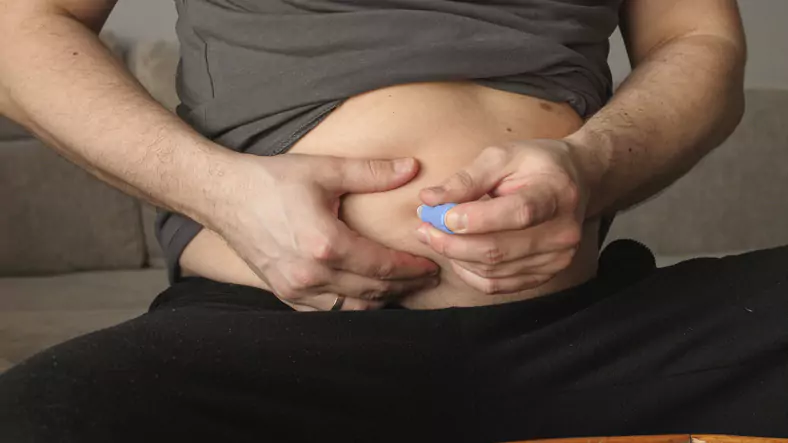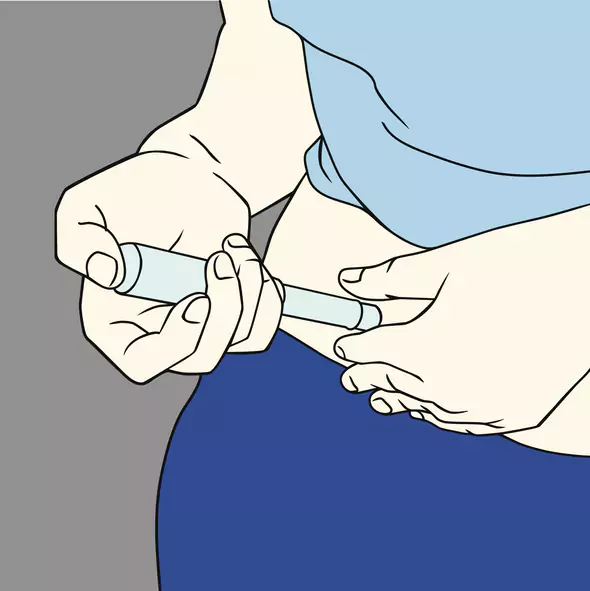
UP TO 40% OFF SITEWIDE






Metformin and Alcohol: Can I Drink Alcohol and Metformin?


Table of Contents
- Metformin, Alcohol, and Diabetes
- How Does Drinking Alcohol and Metformin Affect Me?
- The Direct Effects of Alcohol Use on Patients Taking Metformin for Diabetes
- What Are the Symptoms of Low Blood Sugar/Hypoglycemia With Metformin and Alcohol?
- What Should I Do if I Have Low Blood Sugar and Take Metformin and Alcohol?
- Can I Use Dexcom G6 or Freestyle Libre When I Have Low Blood Sugar?
- How Does Lactic Acidosis Develop in Diabetic Patients Taking Metformin and Alcohol?
- What Are the Symptoms of Lactic Acidosis in Patients Taking Metformin and Alcohol?
- I Drink Alcohol. Should I Stop Taking Metformin for My Diabetes?
- What Are the Other Things I Need To Know About Metformin?
- Other Metformin Side Effects
- How To Stop Metformin-Induced Side Effects?
- Summary
- About The Author
- RESOURCES
Metformin, Alcohol, and Diabetes
Are you a person with diabetes taking metformin and drinking alcohol occasionally or heavily? If so, this article will be very important for you to read to the end. As an endocrinologist/diabetes doctor, I deal with patients with diabetes every day, and I get many questions about diabetes, alcohol, and metformin all the time.
Research showed us that diabetes control requires patient adherence. That is important to achieve success with diabetes, as alcohol and metformin use can interact with negative results of diabetes that are harmful to our liver. There are important behaviors that every diabetic patient taking metformin or not should follow.
These are blood glucose monitoring, a diabetic diet, and exercise for diabetes. In addition, avoiding alcohol generally for diabetes is a wise idea while taking metformin. But should you avoid alcohol totally? Or should you just limit the intake? Unfortunately, adherence to diet for diabetes and alcohol recommendations is not always easy.
Social alcohol drinking is very common for patients with diabetes taking metformin. Are you a patient who drinks alcohol and takes metformin for your diabetic condition? Then, continue to read this article to gain more in-depth knowledge about how these two substances work in your system and how they might affect your health. You can discuss this with your diabetes doctor/endocrinologist at every visit.
How Does Drinking Alcohol and Metformin Affect Me?
As diabetes doctors treating diabetes daily, we know there is a direct correlation between alcohol intake, poor diabetes control/and high HbA1c levels.
Most diabetic patients who consume alcohol frequently actually have less food consumption. Those patients who drink alcohol while taking metformin also may not adhere to dietary and medication recommendations. This could be due to alcohol’s effects on judgment. Drinking alcohol can take you away from exercise and glucose self-monitoring. Also, alcohol can cause low blood glucose levels. As a result, most patients are hesitant to take their medications including insulin. Even if they knew taking alcohol, metformin and insulin can cause them to experience low blood sugar.
This problem with adherence does not only happen to heavy drinkers with alcohol addiction. It also affects moderate drinkers, who can show similar problems in taking their metformin and other drugs or substances. Metformin, a substance taken with alcohol, may increase the risk of a rare but serious and potentially life-threatening condition known as Lactic acidosis.
Although rare, the condition is a possible severe interaction between the two substances. Lactic acidosis is another complication in diabetic patients taking metformin and drinking alcohol. We will examine low blood glucose levels and lactic acidosis as complications of metformin and alcohol in more detail below.
The Direct Effects of Alcohol Use on Patients Taking Metformin for Diabetes
Very small amounts of alcohol, such as a glass of wine, may not have an immediate effect on the blood glucose level. The effect might take some time or build up with more consumption of alcohol. On the other hand, if you are a diabetic patient taking insulin in addition to metformin, the risk of affecting your blood glucose level is higher.
Moderate to heavy alcohol consumption can increase the risk of low blood sugar. Low blood sugars can happen even after 24 hours of alcohol intake. Suppose you take metformin and sulfonylurea, such as glipizide, glimepiride, and glyburide.
You should know that a possible interaction between the two can dramatically increase the risk of low blood sugar. Another reason to limit alcohol is that taking metformin and alcohol together can lead to lactic acidosis. This condition is not very common but poses a danger to your health.
What Are the Symptoms of Low Blood Sugar/Hypoglycemia With Metformin and Alcohol?
Symptoms of low blood sugar/hypoglycemia while taking metformin and alcohol include:
- Shaking, mostly in the hands
- Sweating and or hot flashes
- Elevated heart rate
- Feeling extremely hungry
- Feeling dizzy or irritable
- Confusion
- Lack of responsiveness and coma if hypoglycemia/low blood sugar is severe enough
What Should I Do if I Have Low Blood Sugar and Take Metformin and Alcohol?
If you have low blood sugar symptoms check your blood sugar first, this will guide your next step. If you confirm that the blood sugars are below 70, you must eat or drink about 15 to 20 grams (g) of carbohydrates. Some foods containing this amount of carbohydrates include but are not limited to:
- Half of a large bun of hamburger
- Half a cup of pasta or rice, or keto pasta, a zucchini that has been spiralized, and cauliflower rice for keto diets
- A large potato or cauliflower mash for keto diets
After consuming the carbohydrate, it is time for the next step. You have to recheck blood sugars in 15 to 20 minutes to ensure that your blood sugars are 15 to 20 mg/dL higher. If you are not going to eat very soon, have another 15 to 20 g of carbohydrate snack in the next 30 minutes. Continue to monitor your blood sugars to know when there is any noticeable change or increase.
Can I Use Dexcom G6 or Freestyle Libre When I Have Low Blood Sugar?
Do not rely on Dexcom G6 or freestyle libre readings when you have low blood sugar. Dexcom G6 and freestyle libre or guardian Medtronic are continuous glucose monitoring systems. They are inaccurate and have delayed indicators of recovery from low blood sugars.
If you are on metformin for diabetes and drinking alcohol, having a carby snack or having cocktails instead of drinking alcohol on rocks or as shots can help. More importantly, make sure your diabetes doctor/endocrinologist knows about your alcohol habit or knows if you abuse alcohol. Your diabetes doctor may adjust your medications accordingly.
How Does Lactic Acidosis Develop in Diabetic Patients Taking Metformin and Alcohol?
Various prescription drugs can increase lactic acid levels at an alarming rate. The more medications you take, the higher the risk of elevated lactic acid levels. Among these drugs is alcohol, which is practically a drug and can also increase the level of lactic acids in our system.
Since both alcohol and metformin can increase the chances of lactic acidosis, your risk of lactic acidosis significantly goes up when you use the two substances together, especially without your doctor's or health provider's knowledge.
For people who have chronic kidney disease, the risk of developing lactic acidosis is even higher. Medications that increase lactic acidosis are listed below. Medications, substances, and toxins that cause lactic acidosis:
- Alcohols
- Metformin
- Acetaminophen/Tylenol
- Beta-adrenergic agonists
- Cocaine
- Cyanogens
- Halothane
- Propofol
- Isoniazid
- Salicylates( aspirin)
- Sulfasalazine
- Valproic acid
What Are the Symptoms of Lactic Acidosis in Patients Taking Metformin and Alcohol?
Suppose you are on metformin and drinking alcohol and have diabetes; watch out for the following symptoms. This is more important if you have had moderate to heavy alcohol consumption.
- Abdominal pain
- Excessive tiredness
- Rapid heart rate
- Confusion and changes in mental status
- Nausea with or without vomiting
- Fast breathing
- Shortness of breath
I Drink Alcohol. Should I Stop Taking Metformin for My Diabetes?
Stopping metformin without discussing it with your diabetes doctor or health provider may not be wise. Reducing alcohol intake or totally quitting alcohol is a better idea, especially if you really care for your health. That is exceptionally true not only for metformin but also for other diabetic medications.
For example, insulin, sulfonylurea medications like glipizide or glyburide, and glimepiride. These medications and substances have been seen to have the ability to increase the risk of severe low blood sugar.
However, there are certain groups of patients for whom metformin may be a high-risk medication. This is due to the increased risk of lactic acidosis in certain medical conditions. If you are one of those patients, discuss it with your diabetes doctor or endocrinologist so that they can figure out the best way forward for you. These medical conditions include:
- Stage 4 or 5 kidney disease
- Type I diabetic patients
- Patients were at risk of diabetic ketoacidosis
- Patients with advanced liver problems such as cirrhosis.
- Patients with advanced heart problems such as stage III or IV heart failure
What Are the Other Things I Need To Know About Metformin?
Regardless of whether you drink alcohol, are an alcoholic who is constantly drinking alcohol, or don't even take alcohol because you are one of those people who look after your health, you need to know certain things about metformin.
This is important, especially when you take it for your diabetes or any other health-related conditions. Metformin can also be used for insulin resistance, prediabetes, and polycystic ovarian syndrome. Regardless of the condition you take it for, the effect of alcohol and metformin on a diabetic patient can be similar.
So, whether it is insulin resistance or polycystic ovarian syndrome, taking alcohol and metformin will drastically affect your health. Metformin increases the risk of lactic acidosis and low blood sugar, especially associated with moderate to heavy alcohol consumption. But it also can cause significant side effects that pose a great risk to your health,
Other Metformin Side Effects
People who use metformin mostly experience one common side effect: diarrhea. It leads to the loss of essential vitamins, like B, A, and in most cases, vitamin C. On the other hand, using extended-release metformin can dramatically reduce diarrhea.
Patients who are on metformin and have diarrhea and drink alcohol are at risk of dehydration as well, which is not good for their health. That is because alcohol consumption reduces food and water intake. Alcohol also increases water loss via stimulating urination.
This effect of alcohol, combined with metformin and diarrhea, increases the risk of dehydration, which puts your health in the worst situation. Other metformin side effects you should know include:
- Nausea
- Vomiting
- Stomach ache
- Appetite loss
- Funny taste in your mouth (metallic taste)
How To Stop Metformin-Induced Side Effects?
To reduce diarrhea resulting from metformin's side effects, please switch to extended-release metformin or ask your diabetes doctor or endocrinologist to adjust your prescription accordingly. Another important information that can help with diarrhea and metformin is taking it with meals.
Taking metformin in the evening meal or the largest meal help reduce diarrhea. If diarrhea is unbearable and these measures are not helping, please discuss this with your diabetes doctor/endocrinologist. There are a lot of alternative medications to metformin. So do not think that metformin is the only option.
Consider using SugarMD Super Berberine; it is great for your health. Contrary to the belief, metformin does not cause kidney failure by itself. Metformin actually reduces the risk of cancers, and some studies suggest when properly monitored, metformin can help to slow the progression of kidney issues.
Metformin can help improve insulin resistance and prevent progression from prediabetes to full-blown diabetes. People who drink alcohol moderately or too much of it and at the same time take metformin for prediabetes place their health at a high risk of progression to diabetes. Earlier, we mentioned the side effects of taking metformin, and another good news about metformin's side effect on diarrhea is that it is temporary.
Most diarrhea or side effects related to diarrhea will dissipate within a few weeks of starting your treatments. If your symptoms persist after a few weeks of treatment, please discuss that with your health provider, diabetes doctor, or endocrinologist.
Summary
The bottom line, metformin is a precious and invaluable diabetes drug if used correctly. However, it is not for everybody. Taking metformin or other diabetic medications and drinking alcohol can increase the risk of low blood sugar and lactic acidosis.
I hope that now you understand metformin's side effects and how to reduce them, the symptoms of low blood sugars, and lactic acidosis. So, continue to check your blood sugar regularly. Follow a diabetic diet. Engage in routine physical exercise.
Most importantly, limit your alcohol intake while taking metformin to prevent the progression of diabetes. If you or one of your loved ones take metformin for diabetes and have an alcohol problem, don't hesitate to contact us.
We may be able to help to manage diabetes in those situations. Consider using SugarMD Super Berberine, which can replace metformin if you have tolerance issues but can also add to glycemic control in addition to metformin.
About The Author
Who is Dr. Ergin? Dr. Ahmet Ergin is an endocrinologist interested in and passionate about diabetes care. Dr. Ergin earned his medical degree with honors at Marmara University School of Medicine in Istanbul, Turkey, and completed his internal medicine residency and endocrinology fellowship at Cleveland Clinic in Cleveland, Ohio.
He is a board-certified Internal Medicine, Endocrinology, Diabetes, and Metabolism Physician; a certified diabetes education specialist, the author of The Ultimate Diabetes Book; and the Founder of the SugarMD youtube channel. He practices in Port Saint Lucie, FL as an endocrinologist physician.
Disclaimer: Any information on diseases and treatments on this website is for general guidance only and must never be a substitute for the advice your doctor or other qualified healthcare professional provides. Always seek the advice of your physician, health provider, or other qualified healthcare professional's advice with questions regarding your health.
RESOURCES
Crandall JP, Polsky S, Howard AA, Perreault L, Bray GA, Barrett-Connor E, Brown-Friday J, Whittington T, Foo S, Ma Y, Edelstein SL; Diabetes Prevention Program Research Group. Alcohol consumption and diabetes risk in the Diabetes Prevention Program. Am J Clin Nutr. 2009 Sep;90(3):595-601. doi: 10.3945/ajcn.2008.27382. Epub 2009 Jul 29. PMID: 19640960; PMCID: PMC2728644. https://pubmed.ncbi.nlm.nih.gov/19640960/ Sanchez-Rangel E, Inzucchi SE. Metformin: clinical use in type 2 diabetes. Diabetologia. 2017 Sep;60(9):1586-1593. doi: 10.1007/s00125-017-4336-x. Epub 2017 Aug 2. PMID: 28770321.
https://pubmed.ncbi.nlm.nih.gov/28770321/ Corcoran C, Jacobs TF. Metformin. 2022 May 2. In: StatPearls [Internet]. Treasure Island (FL): StatPearls Publishing; 2022 Jan–. PMID: 30085525. https://pubmed.ncbi.nlm.nih.gov/30085525/ Morales DR, Morris AD. Metformin in cancer treatment and prevention. Annu Rev Med. 2015;66:17-29. doi: 10.1146/annurev-med-062613-093128. Epub 2014 Nov 6. PMID: 25386929. https://pubmed.ncbi.nlm.nih.gov/25386929/ Bailey CJ. Metformin: a historical overview. Diabetologia. 2017 Sep;60(9):1566-1576. doi: 10.1007/s00125-017-4318-z. Epub 2017 Aug 3. PMID: 28776081. https://pubmed.ncbi.nlm.nih.gov/28776081/
Written By Dr. Ahmet Ergin
465 total articles
Meet Dr. Ahmet Ergin, a highly skilled and dedicated endocrinologist with a passion for diabetes care. Dr. Ergin earned his medical degree with honors from Marmara University in Istanbul. He completed internal medicine residency and endocrinology fellowship at Cleveland Clinic. Dr. Ergin is board-certified in Internal Medicine, Endocrinology, Diabetes, and Metabolism due to his vast medical expertise. He's a certified diabetes educator, author of “The Ultimate Diabetes Book,” and founder of “the SugarMD YouTube channel.” Dr. Ergin offers exceptional diabetes care to his patients in Port Saint Lucie, FL, helping them manage effectively. For a closer look into his insights and experiences, connect with Dr. Ahmet Ergin on LinkedIn, Instagram, and YouTube.”
Disclaimer: These statements have not been evaluated by the Food and Drug Administration. Information on this website isn't intended to treat, cure or prevent any disease. Discuss with your doctor and do not self-treat.
Products











